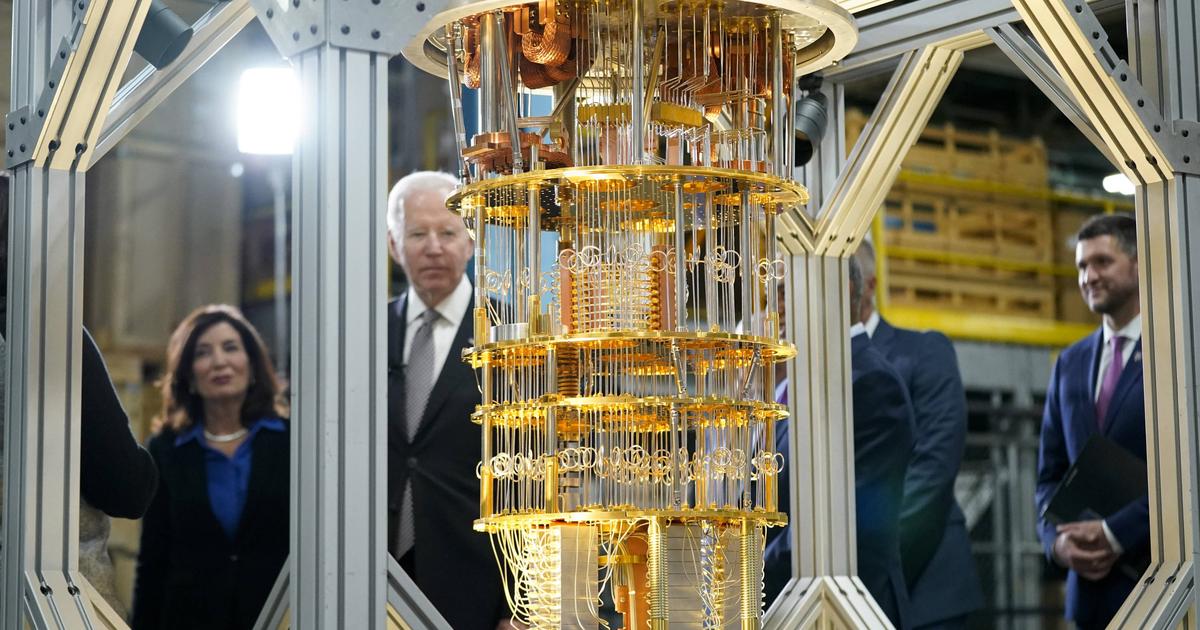Researchers at the University of Lübeck have successfully decoded the crucial enzyme for the propagation of the coronavirus.
- Researchers at the University of Lübeck have apparently made a breakthrough.
- A crucial enzyme for the multiplication of the coronavirus * could be decrypted.
- Here you will find the basic facts about the corona virus * and the previous corona news from Germany in our ticker *. You can also find current case numbers * in Germany as a map. The following recommendations for corona protective measures * are currently available.
Update from April 2nd: The German professor Rolf Hilgenfeld has been researching corona viruses * at the University of Lübeck for more than 20 years. Especially in times of the corona pandemic * , his skills are in demand. Together with his partner Linlin Zhang , he found a way at the University of Lübeck to decipher the main protease of the dangerous Sars-CoV-2 virus. The protease is crucial for the multiplication of the virus.
Coronavirus: inhibitor already tested - Hilgenfeld with a clear assessment
The new approach is promising; in collaboration with other German researchers, a potent inhibitor has been developed. This was then synthesized and tested for its effectiveness. However, Hilgenfeld presses the brakes on euphoria: "It will certainly take several years for our active ingredient to develop into an anti-coronavirus drug." If all goes well, a drug for Sars-CoV-3 could ultimately be available , "But certainly not during the current outbreak ".
The research group of Prof. Rolf Hilgenfeld has elucidated the structure of a key enzyme of the #Coronavirus. An article has been published today in the @ScienceMagazine. The structures described can help in the discovery of other active ingredients. https://t.co/1xCdsXDRrD pic.twitter.com/FJka3EhSxr
- University of Lübeck (@UniLuebeck) March 20, 2020Hilgenfeld began researching coronaviruses in 2013 after the onset of the Middle East Respiratory Syndrome (Mers). Since then, he and his team have optimized inhibitors that inhibit the main protease of all possible corona viruses. "We even made sure that our compounds also block bat corona viruses that were discovered in China," said the chemist, who actually wanted to retire on April 1 this year.
Coronavirus: German researcher decrypts important detail in coronavirus
Lübeck - Researchers Linlin Zhang and Rolf Hilgenfeld from the University of Lübeck have made a real breakthrough . They were able to decipher an enzyme that is crucial for the multiplication of the novel coronavirus . The researchers also found an inhalable inhibitor that works against the newly decoded main protease of the SARS-CoV-2 virus.
It is specifically about the main viral protease Mpro , without which the coronavirus cannot copy its genetic material (RNA) from the host cell and thus multiply it. Closer research into the enzyme structure could now help combat the virus. An inhibitor that has been developed against related corona viruses has already been tested effectively in mice and in cell cultures.
Corona virus: Research is in full swing - first successes with old inhibitors
The main protease is the decisive factor in the fight against the virus, since it cannot multiply without it. With the discovery of the two Lübeck researchers Zhang and Hilgenfeld, a new approach for antiviral agents against the novel corona virus is now being opened.
Covid-19's worryingly continuously increasing number of cases * is putting researchers worldwide under pressure. A suitable vaccine is currently being rushed for - but also for antiviral agents that could prevent the spread of the pathogen in the body and thus also stop it.
Possible successes already seem to be emerging. An inhibitor that Hilgenfeld and his team developed a few years ago against the MERS-CoV pathogen and other related coronaviruses is also said to have proven effective against SARS-CoV-2. In the mice, the inhibitor accumulated in the lungs and kidneys as hoped - these organs are most affected in Covid-19.
Video: This is how a Corona test center works
Corona Virus: Lung Culture Trials Successful - Too Late for Current Pandemic?
But the experiments also worked with human lung cell cultures . In the case of already infected lung cells, the new inhibitor blocked the multiplication of the virus, thus preventing the infection from progressing. According to the researchers, the inhalable inhibitor of the main protease opens up an approach for new agents against the rampant coronavirus. The researchers also found that the inhibitors were highly likely to be non-toxic .
However, the developments are probably too late to counteract the current pandemic. "It will certainly take several years for our active ingredient to develop into an anti-coronavirus drug," says Hilgenfeld.
Coronavirus: New findings important for later waves of infection
Studies should now be financed. At best, funding could come from the consortium, which is part of an initiative by the European Commission to fight the coronavirus. However, the new findings could help make possibly recurring waves of Covid infections treatable and thus reduce deaths in some time.
After his Covid 19 illness, Friedrich Merz spoke up and predicted a changed "post-corona world". Virologist Christian Drosten, meanwhile, is dampening hopes of “shortcuts” in vaccine approval.
List of rubric lists: © dpa / Bernd von Jutrczenka








/cloudfront-eu-central-1.images.arcpublishing.com/prisa/MXP5VLYEOJEP7C5YRYNRRHMHOA.jpg)
